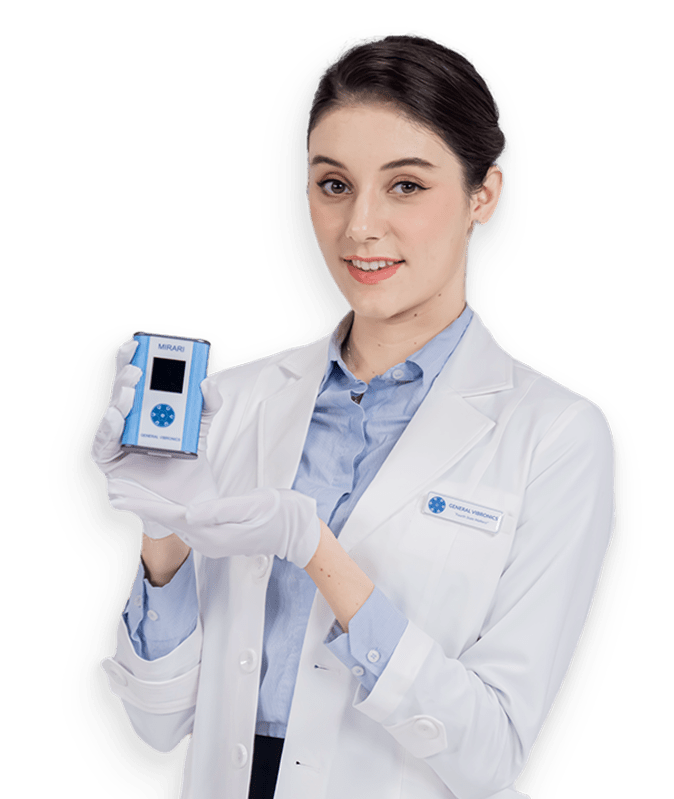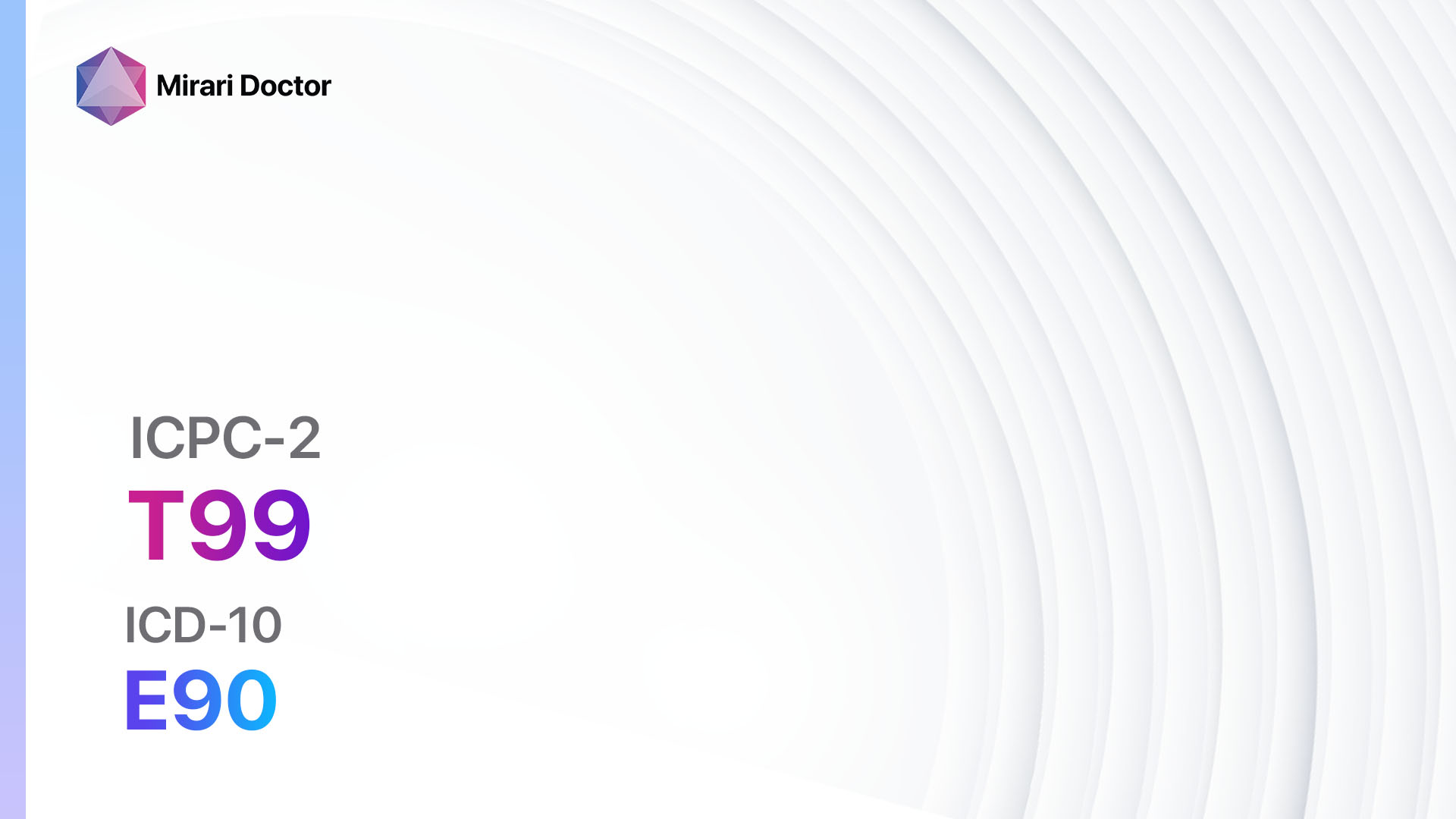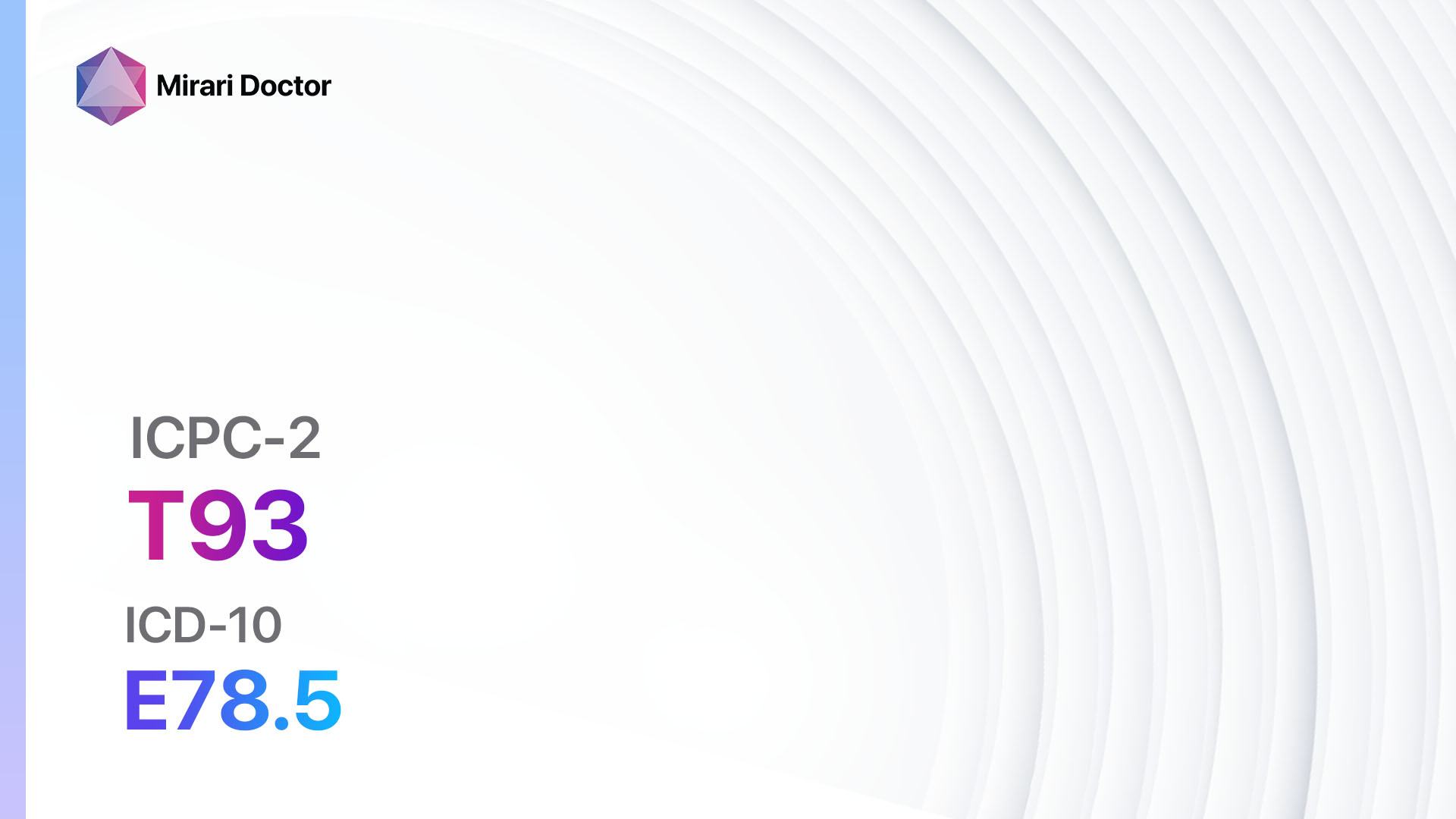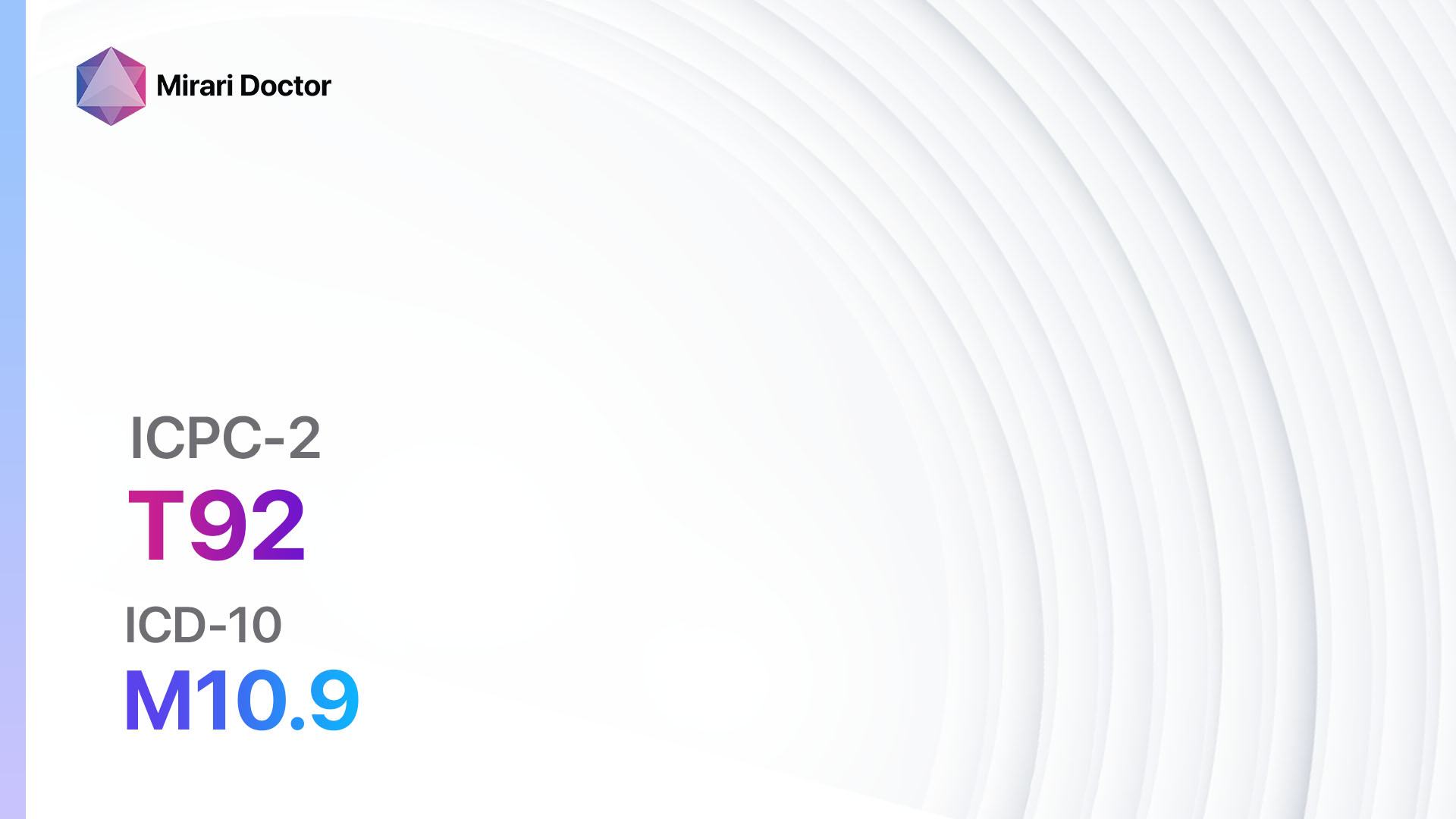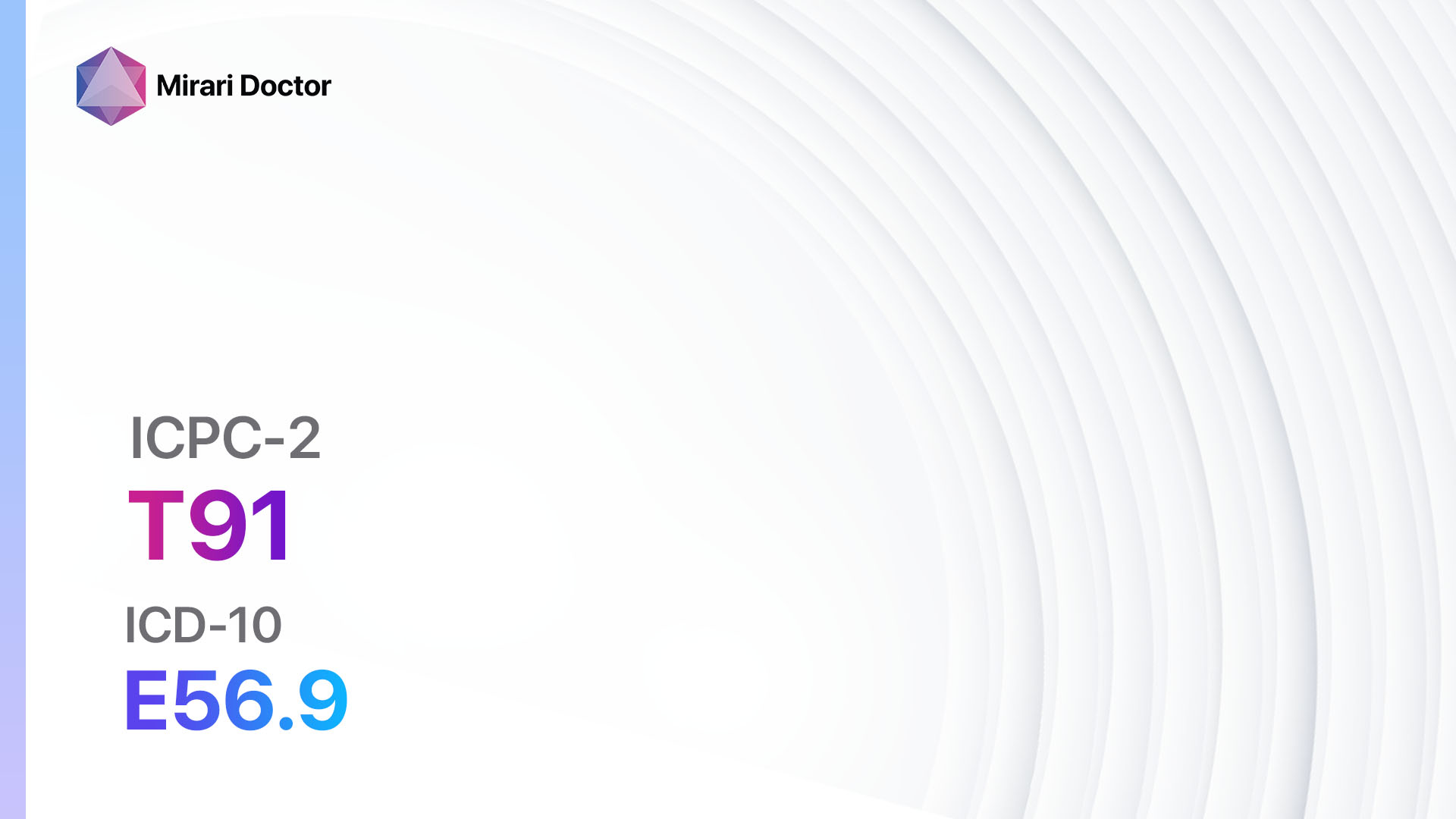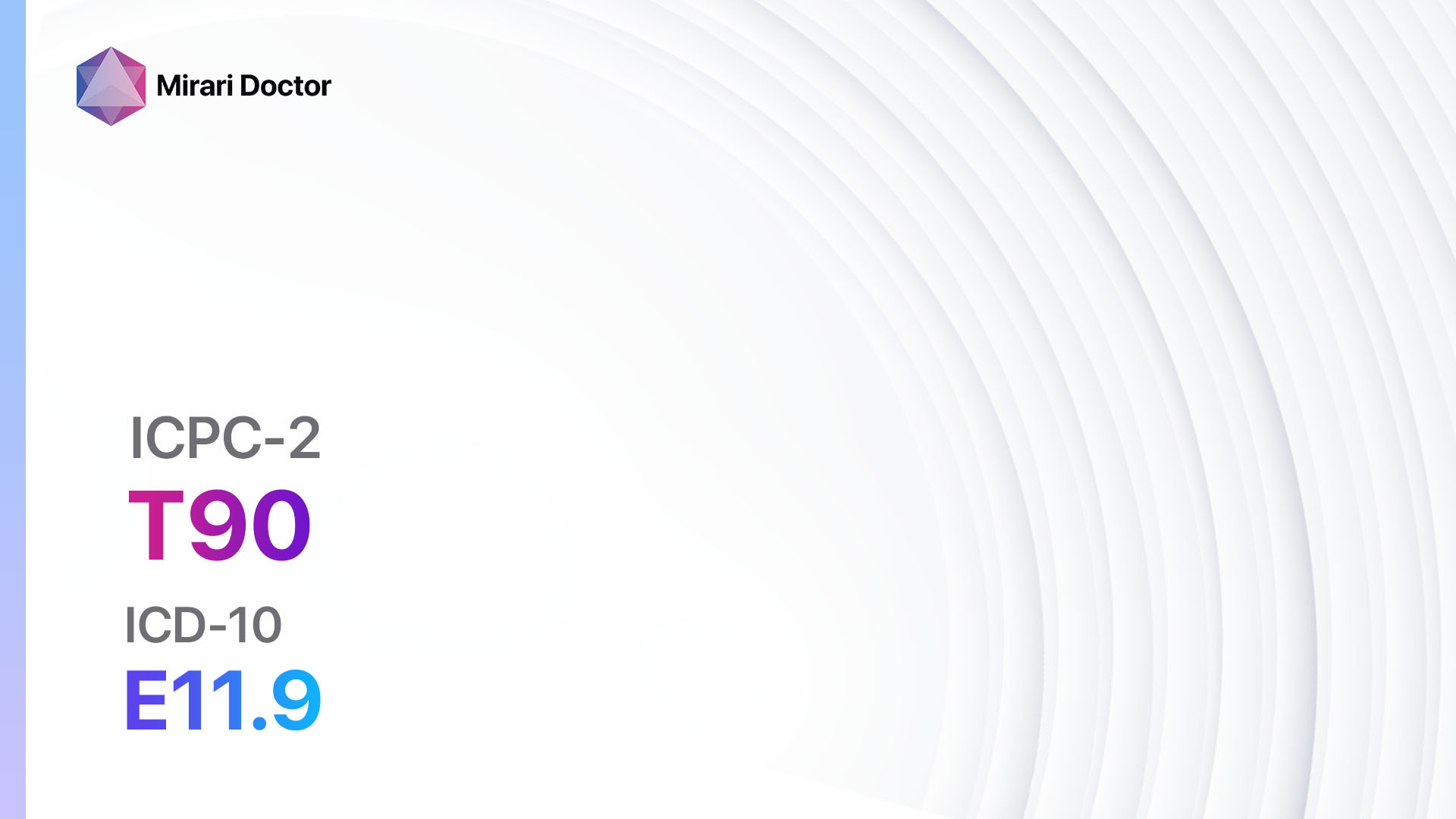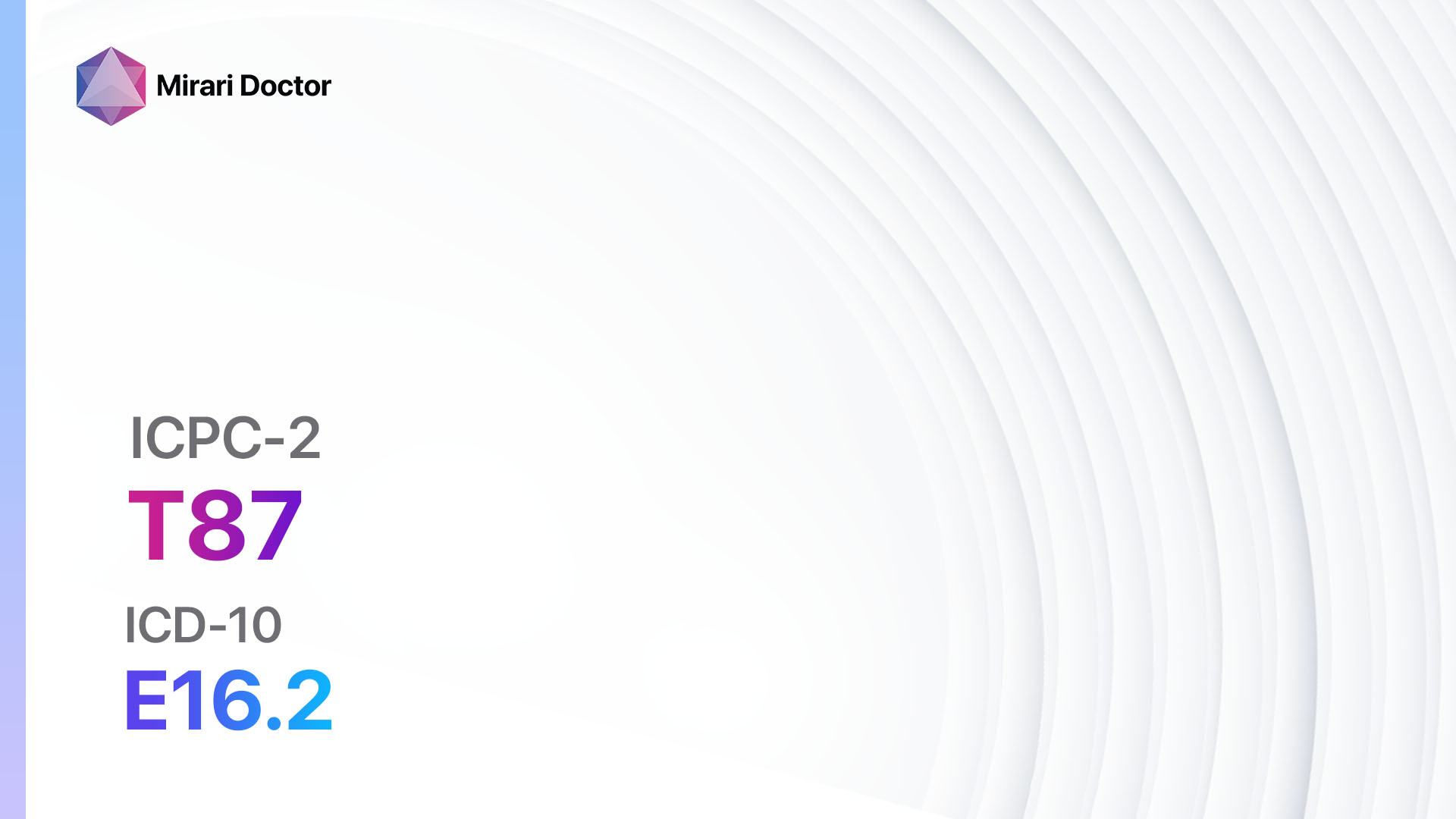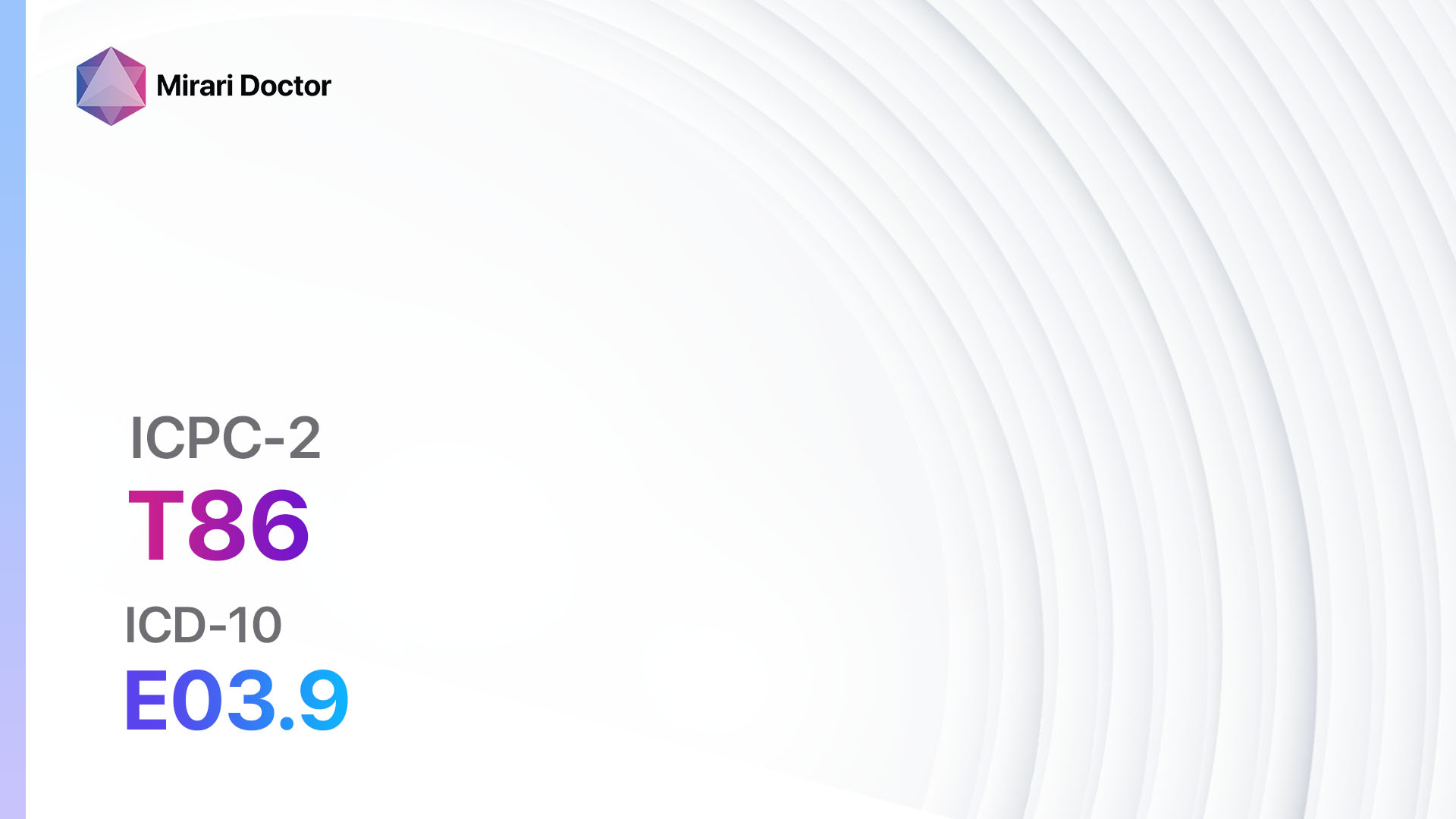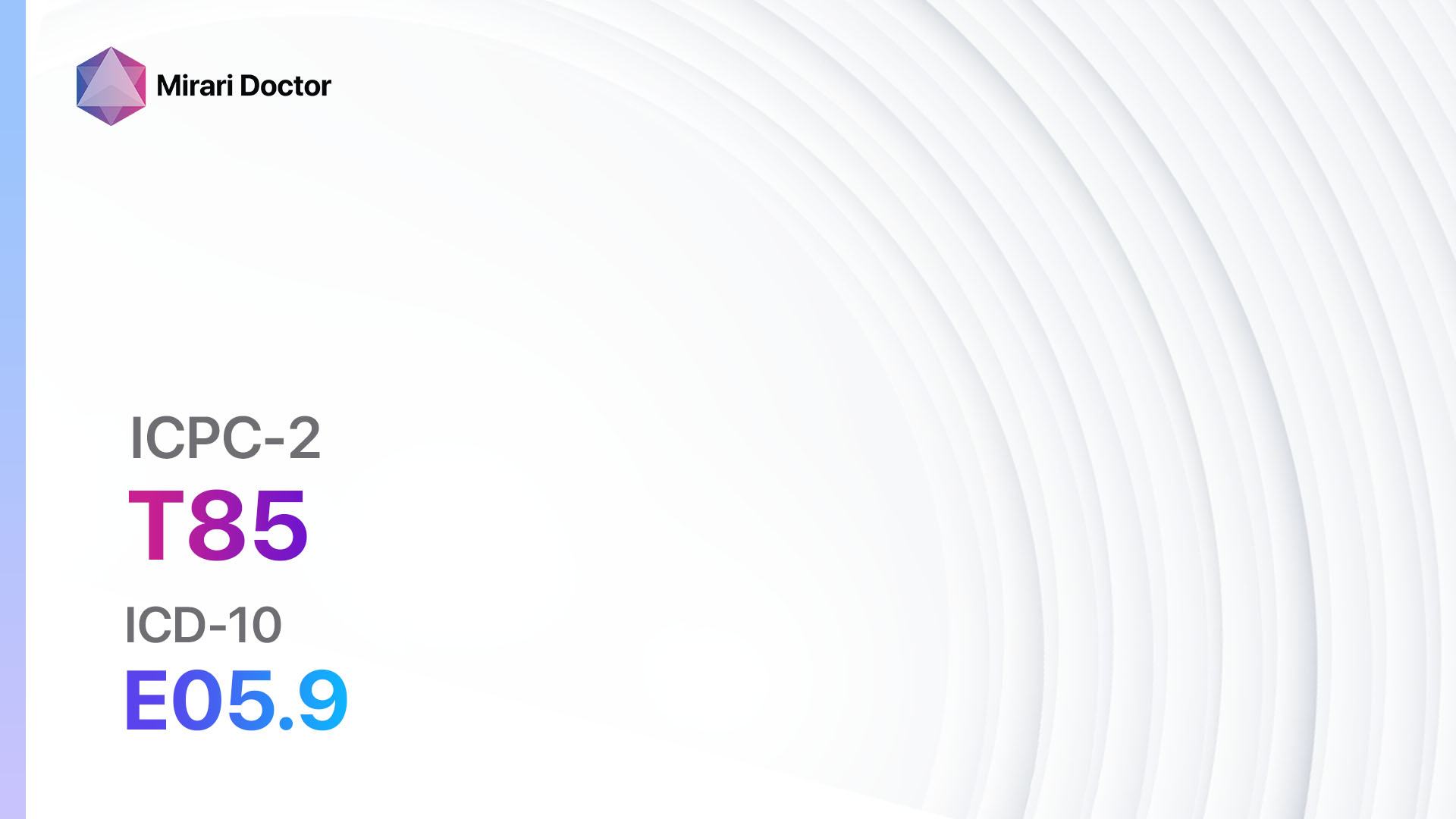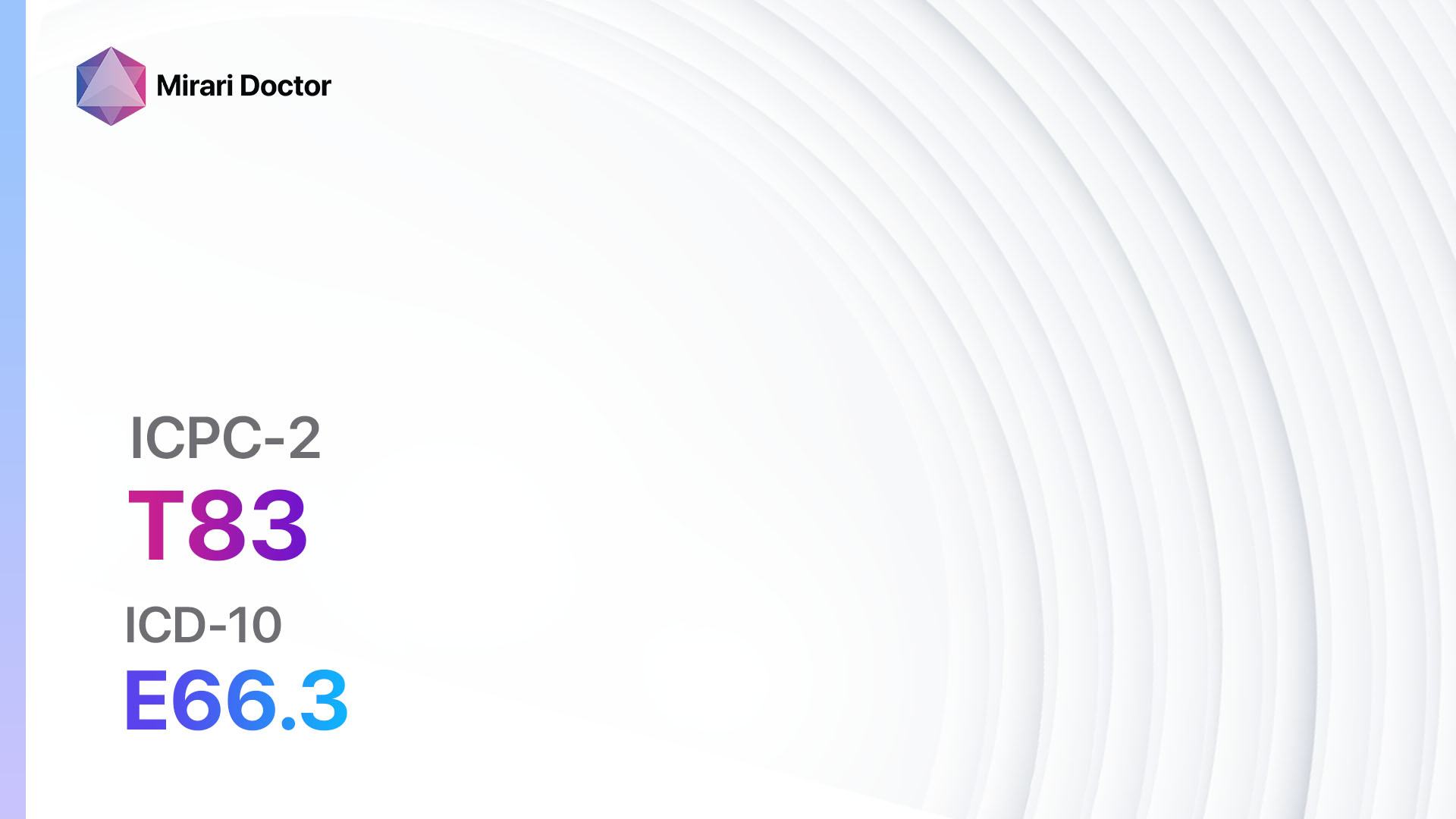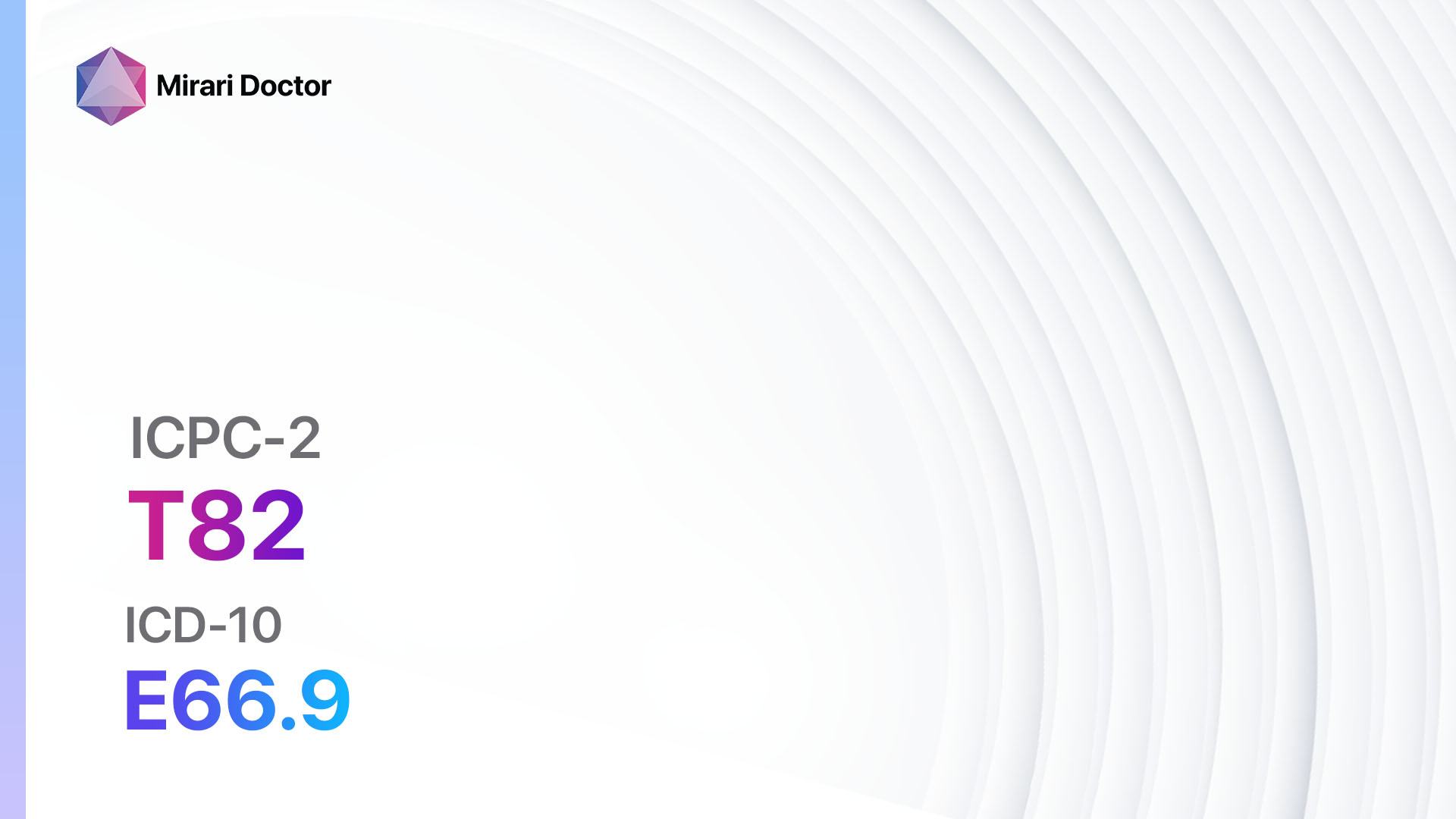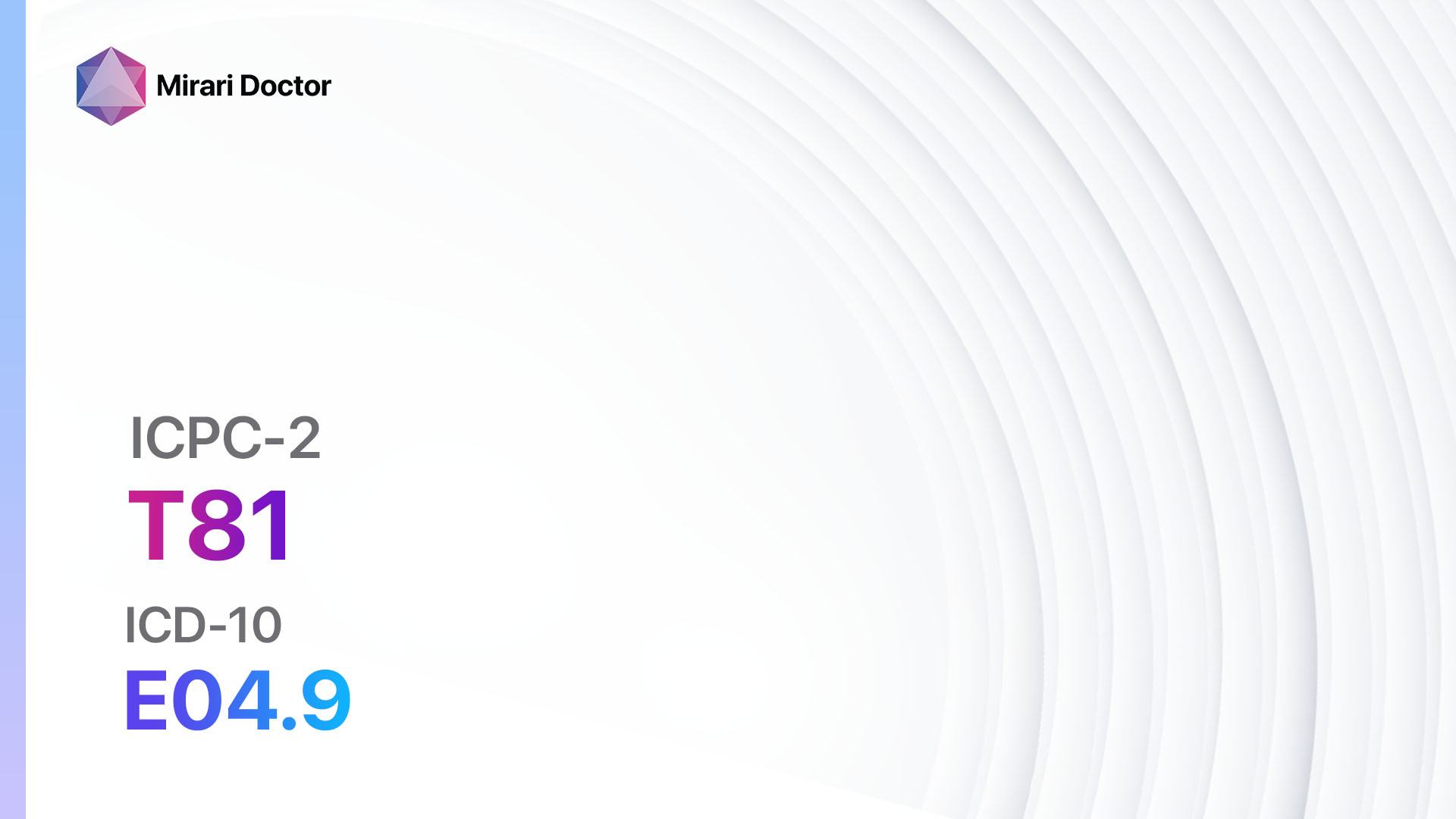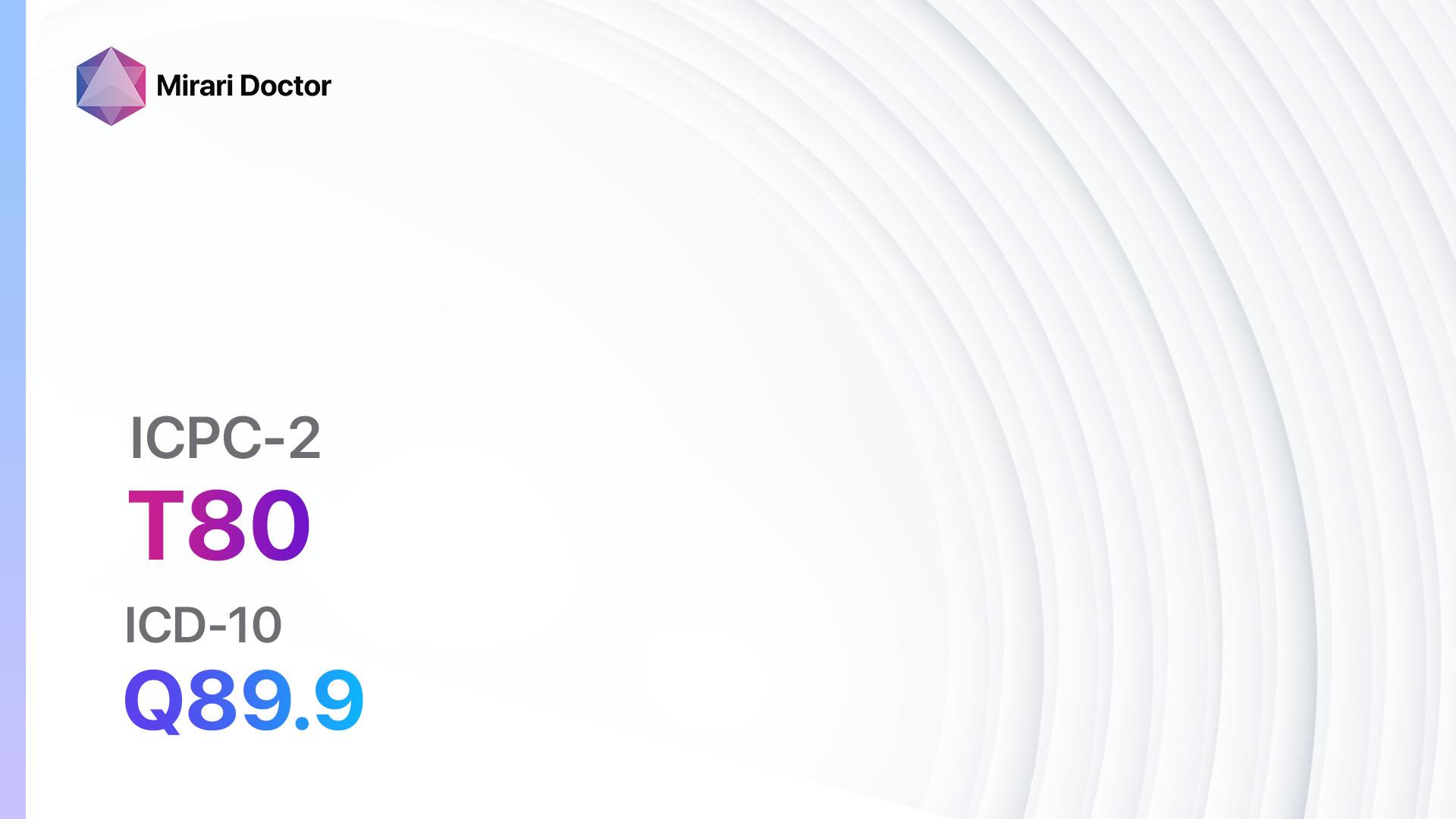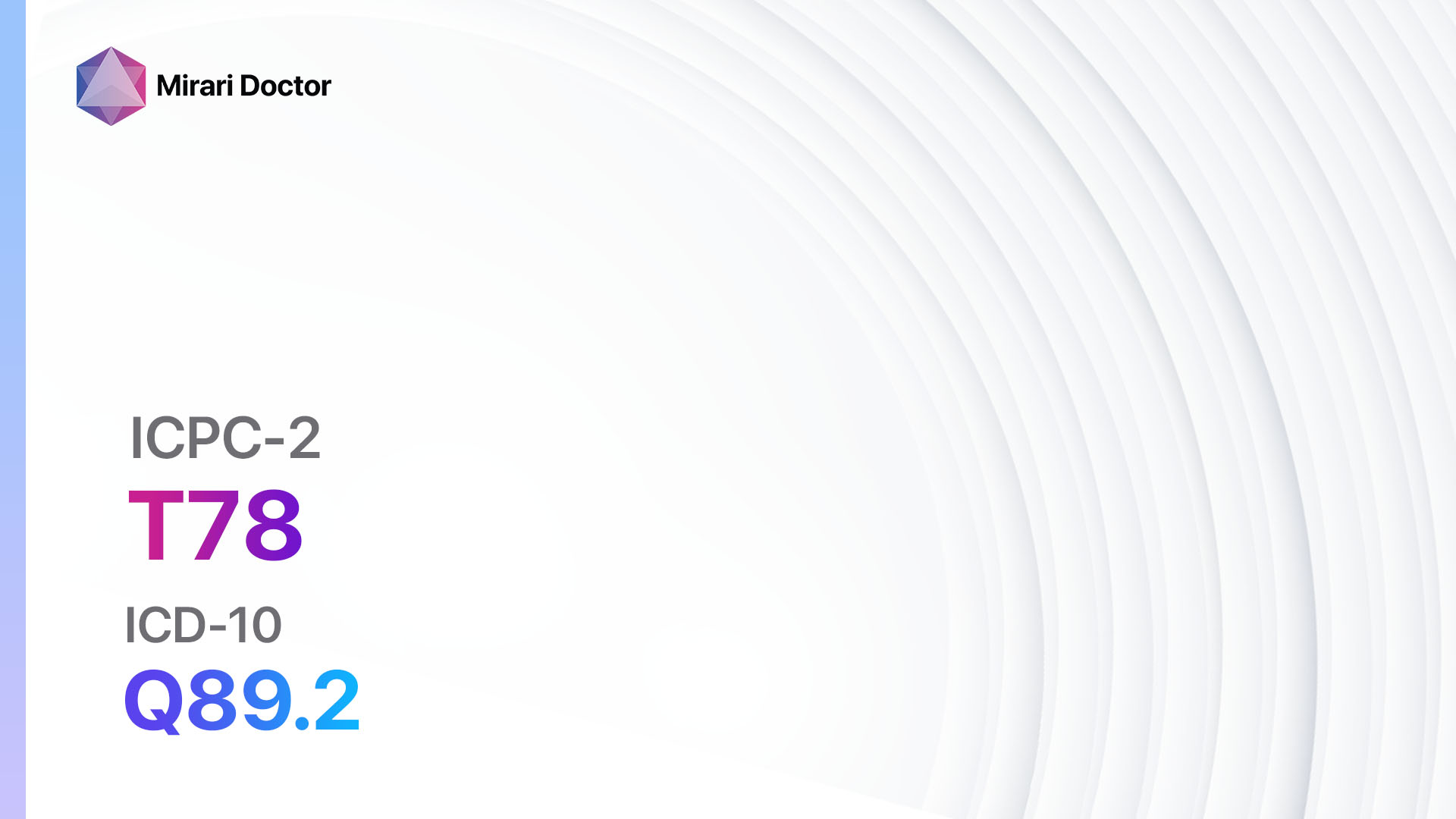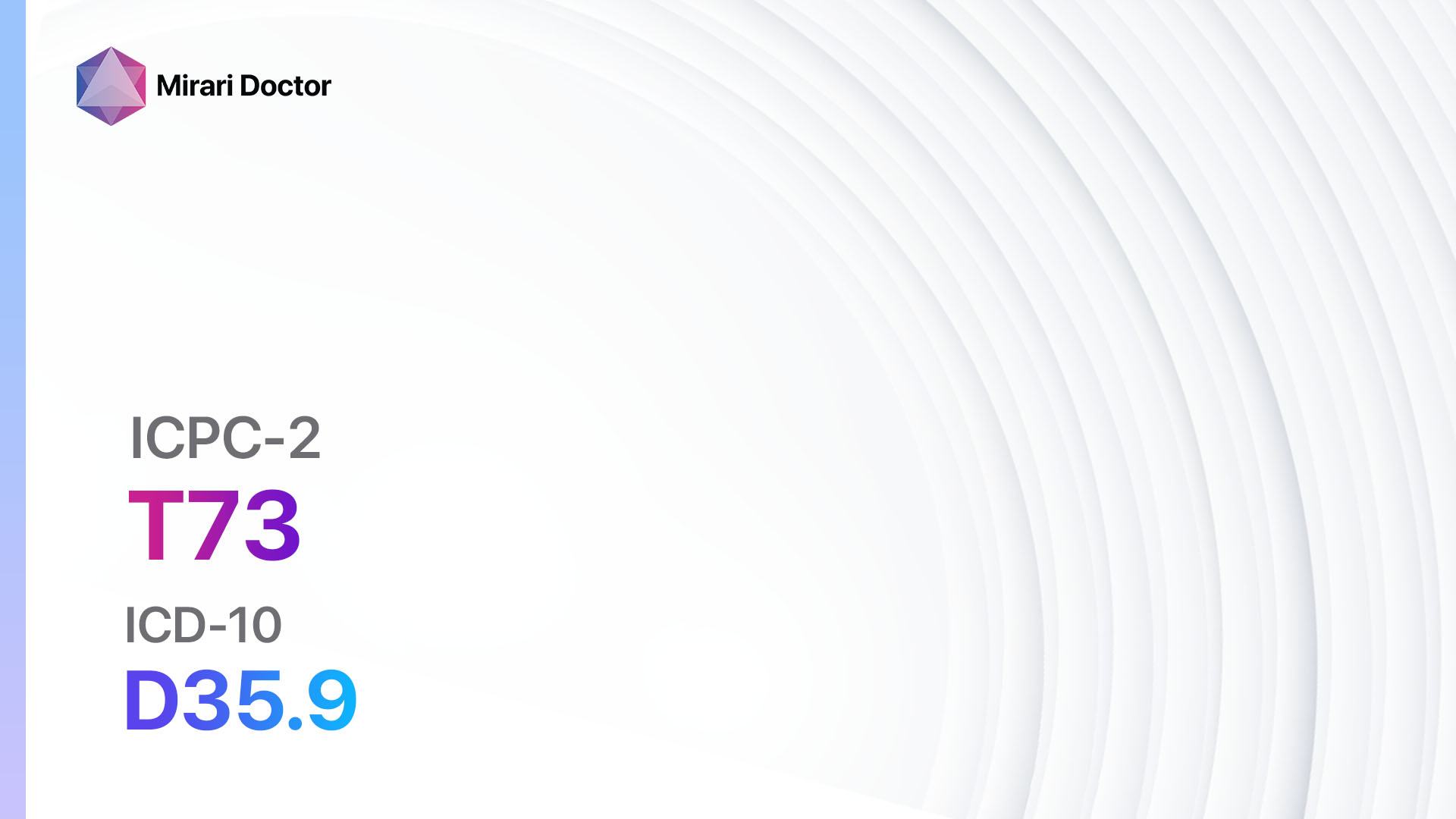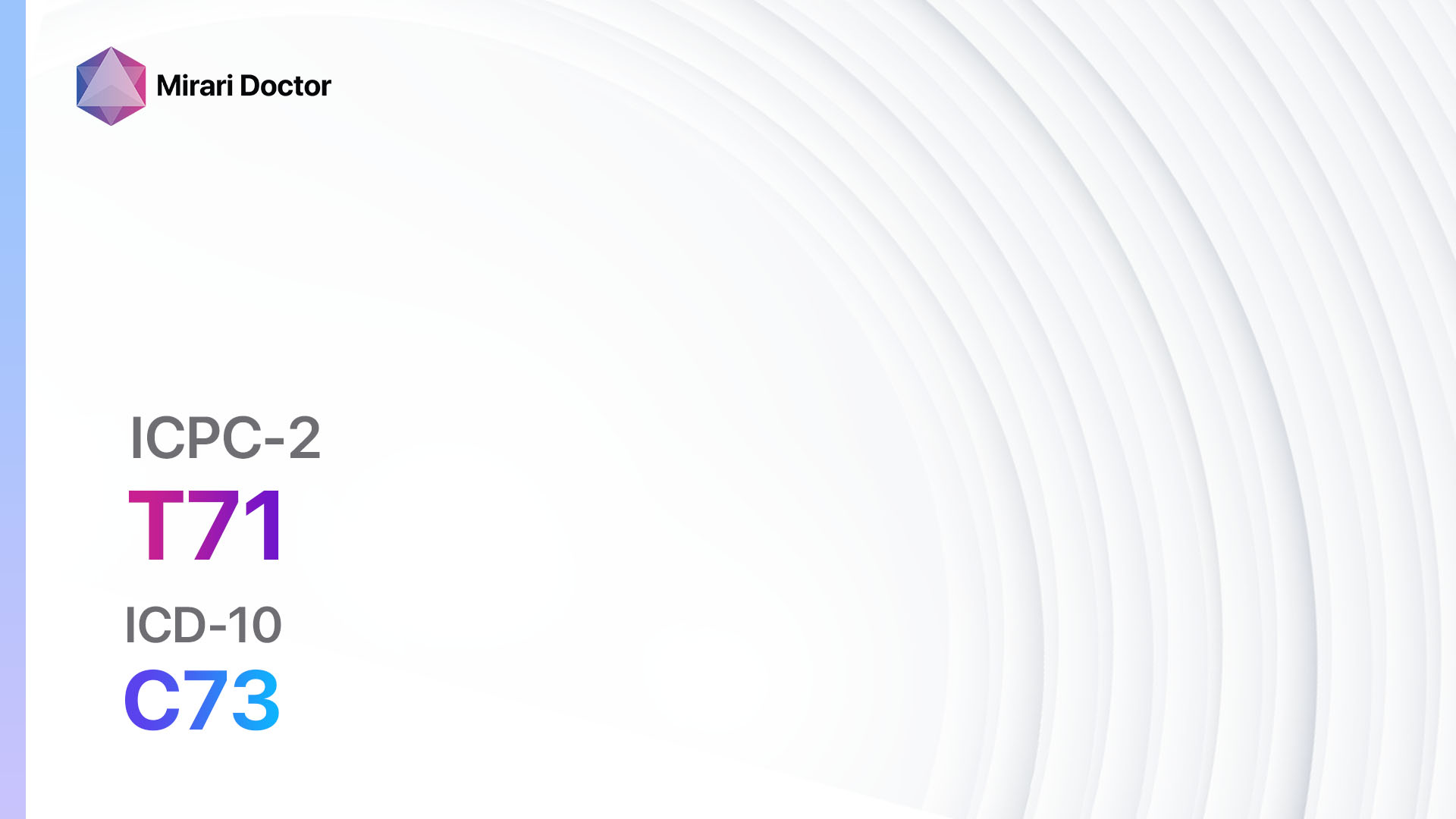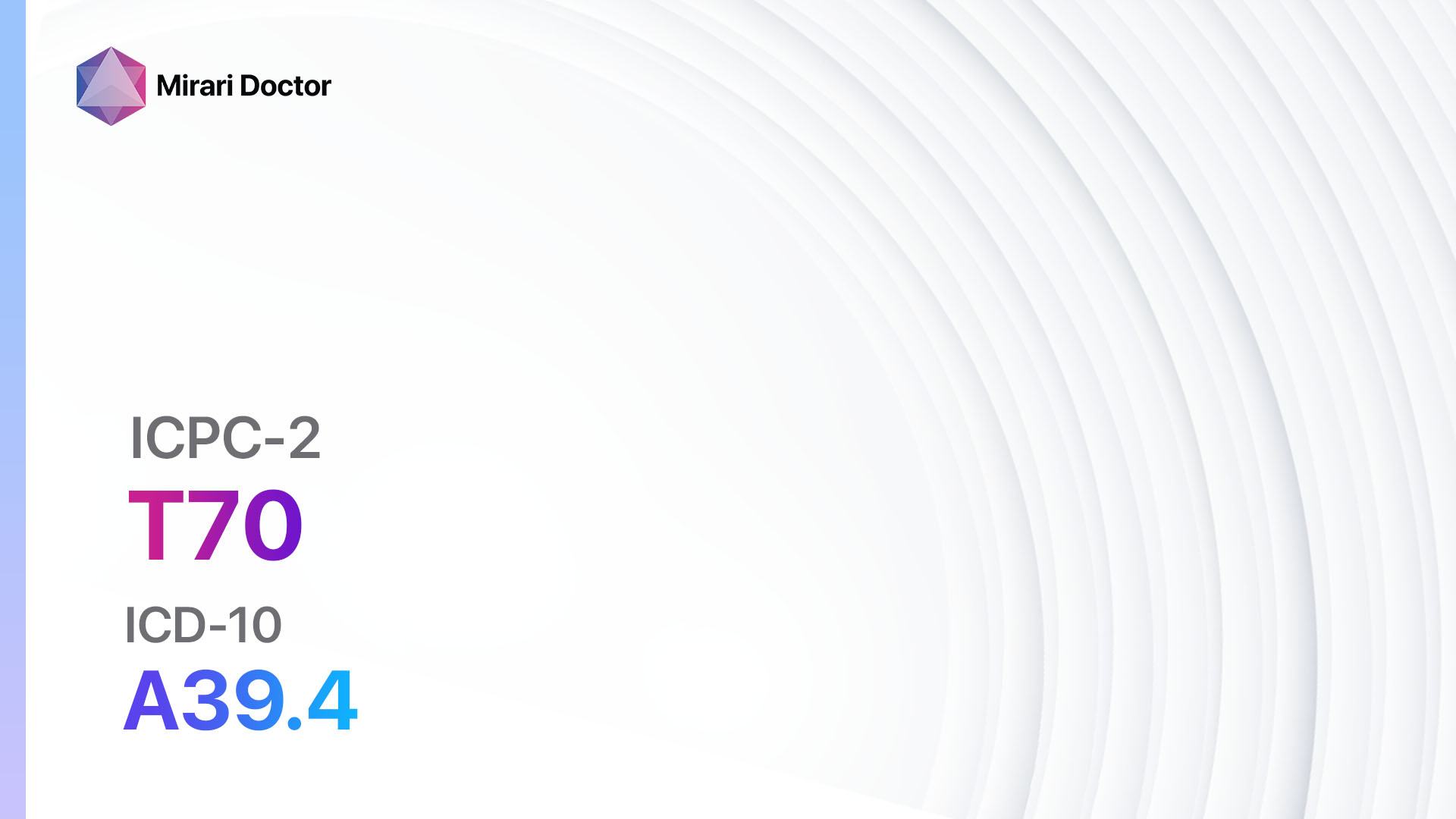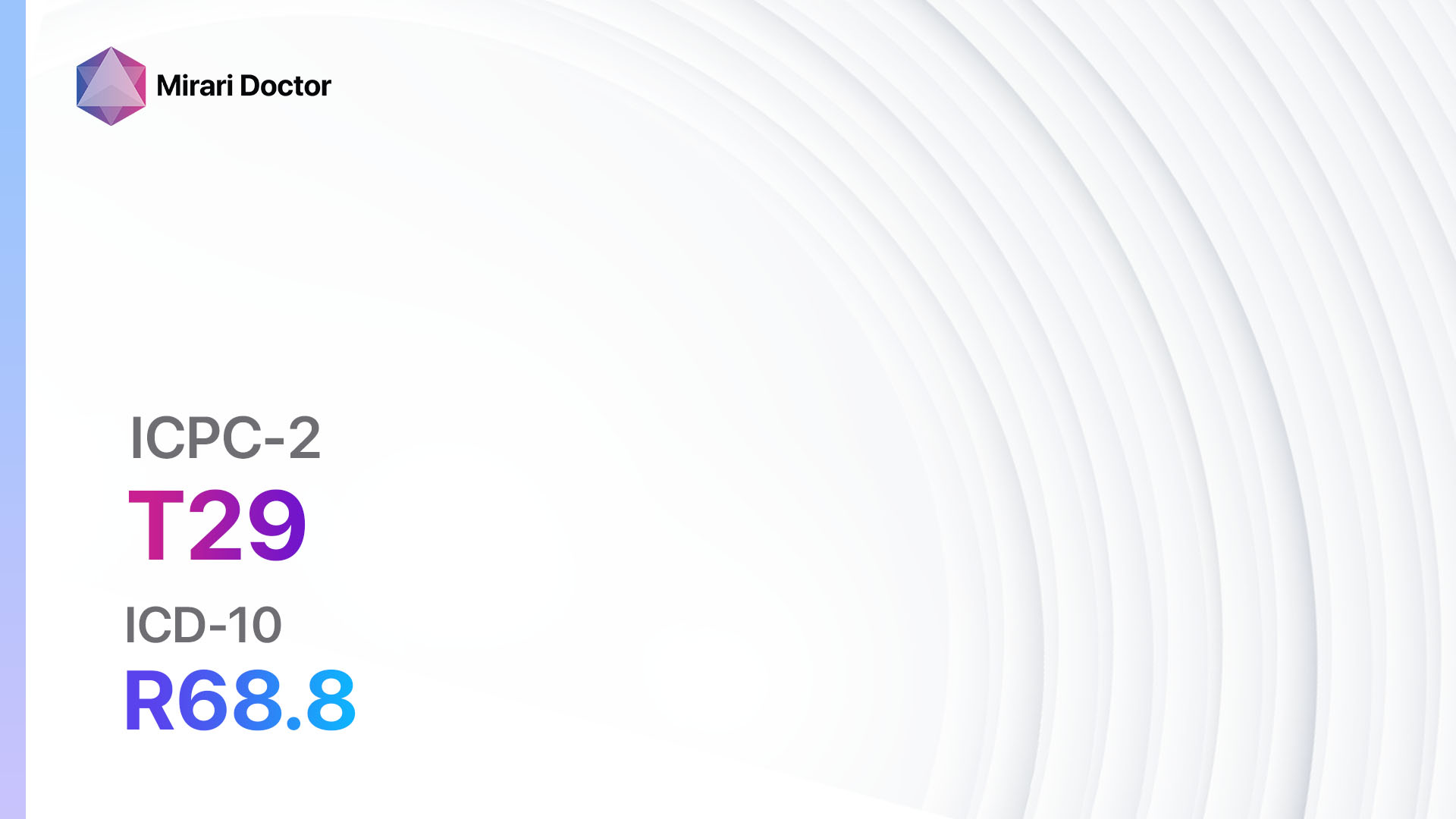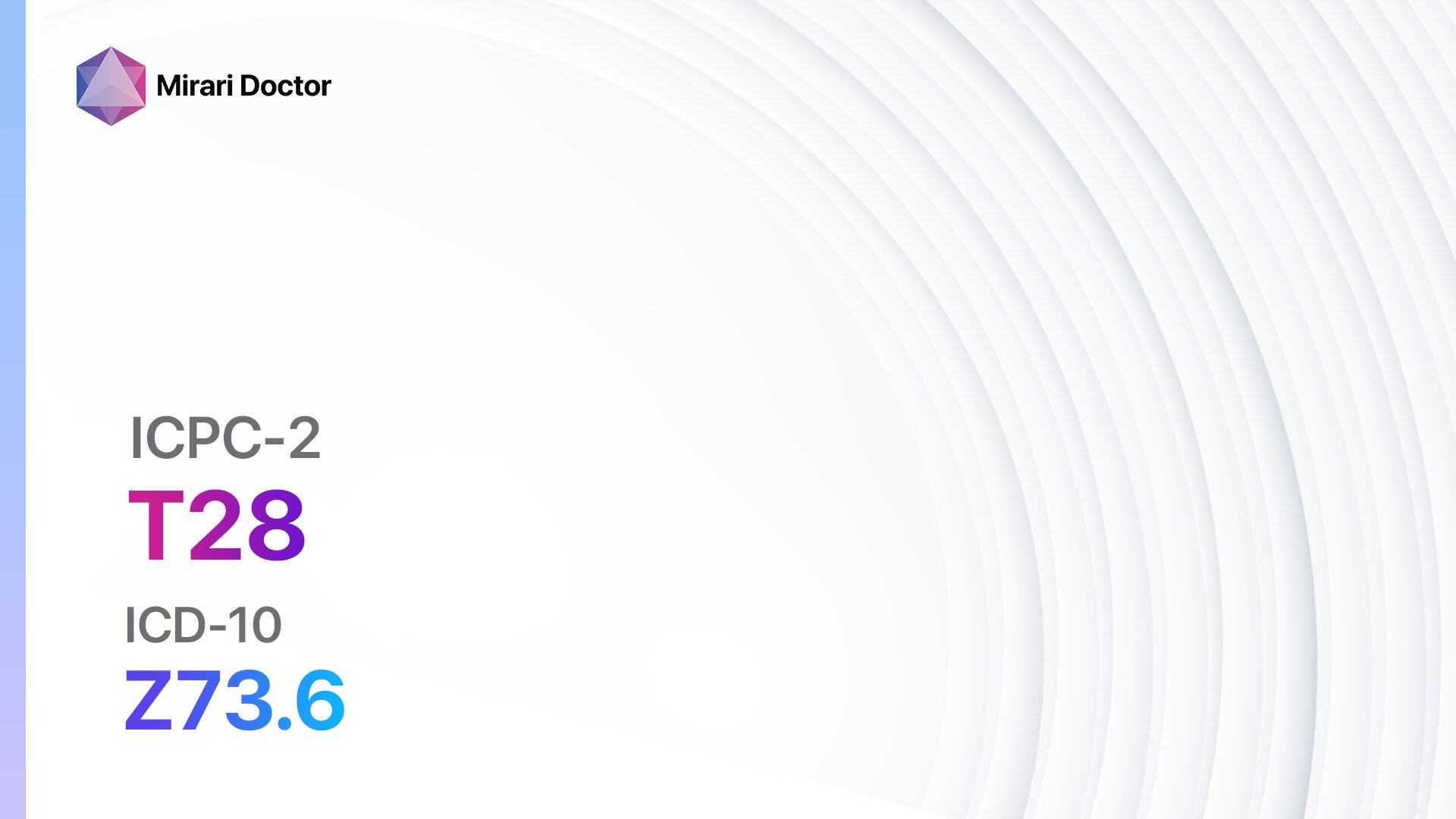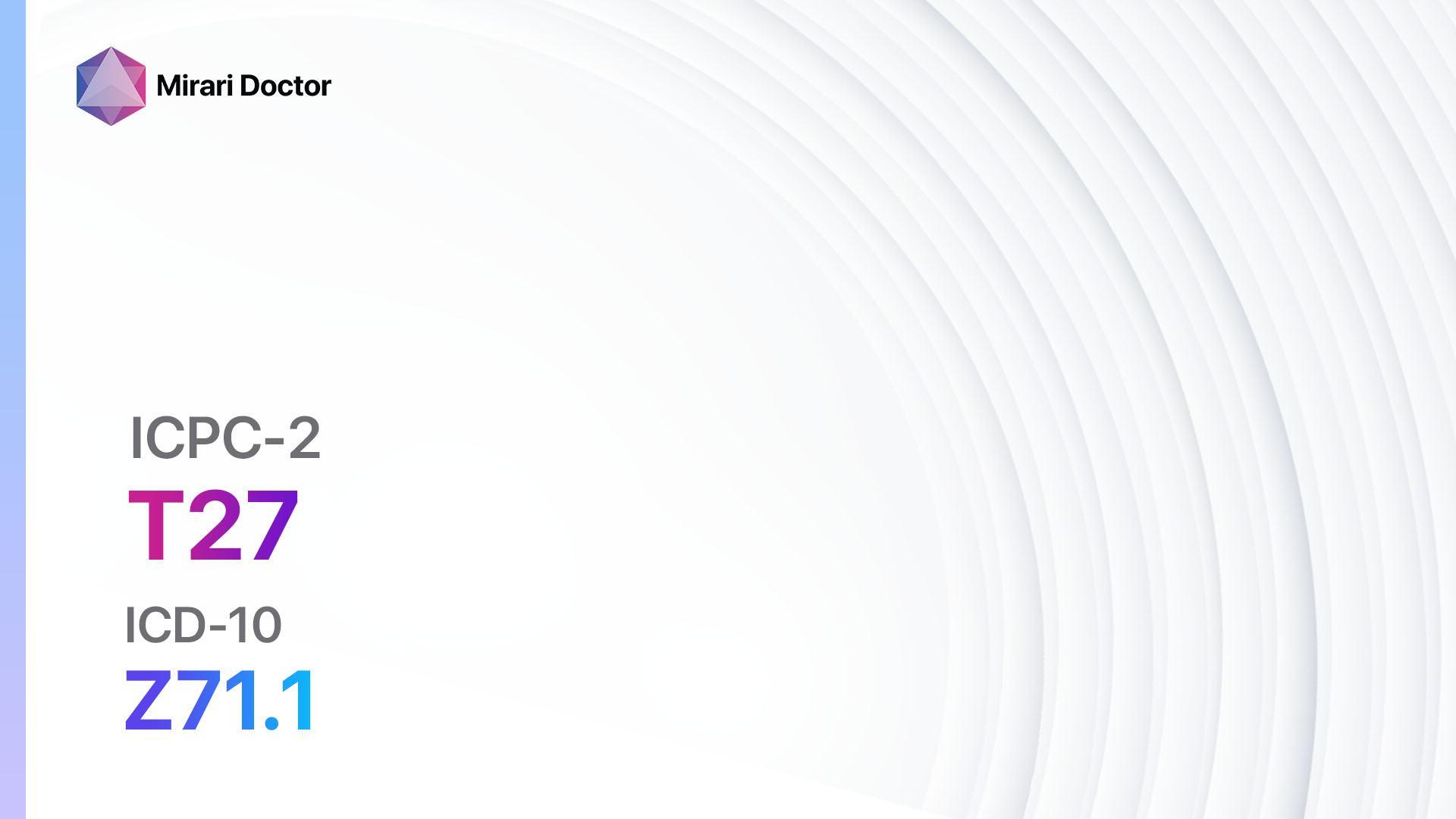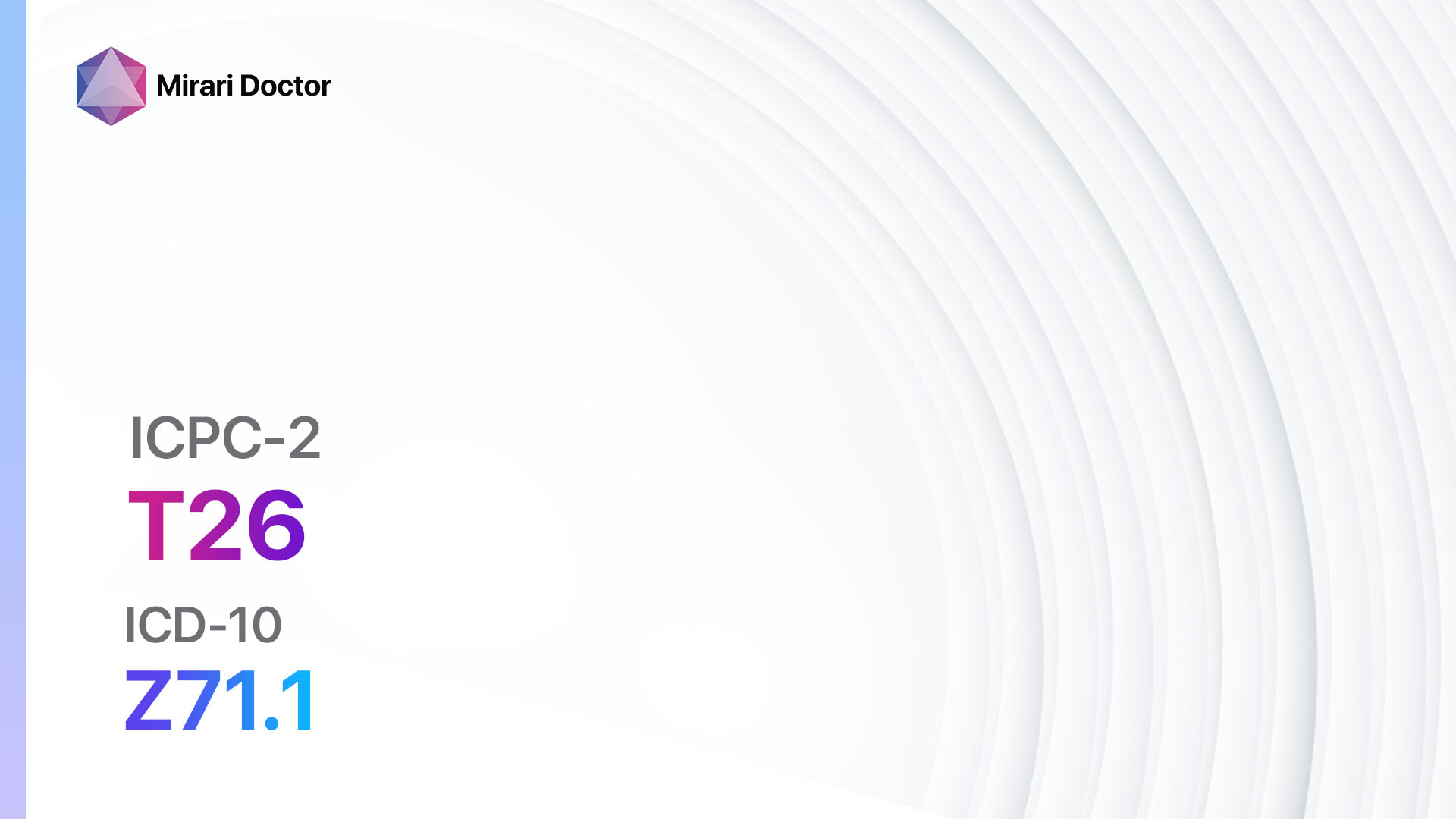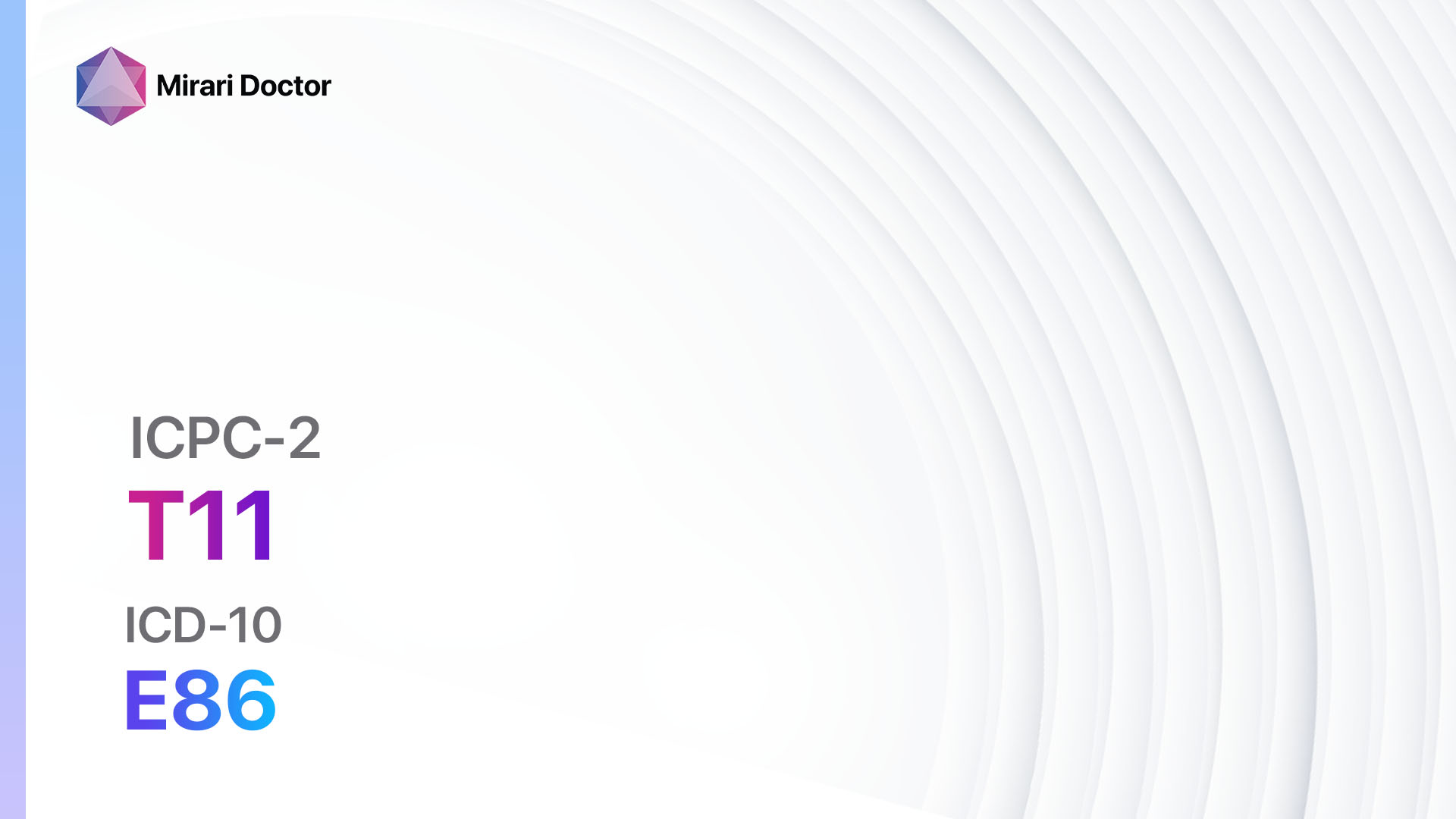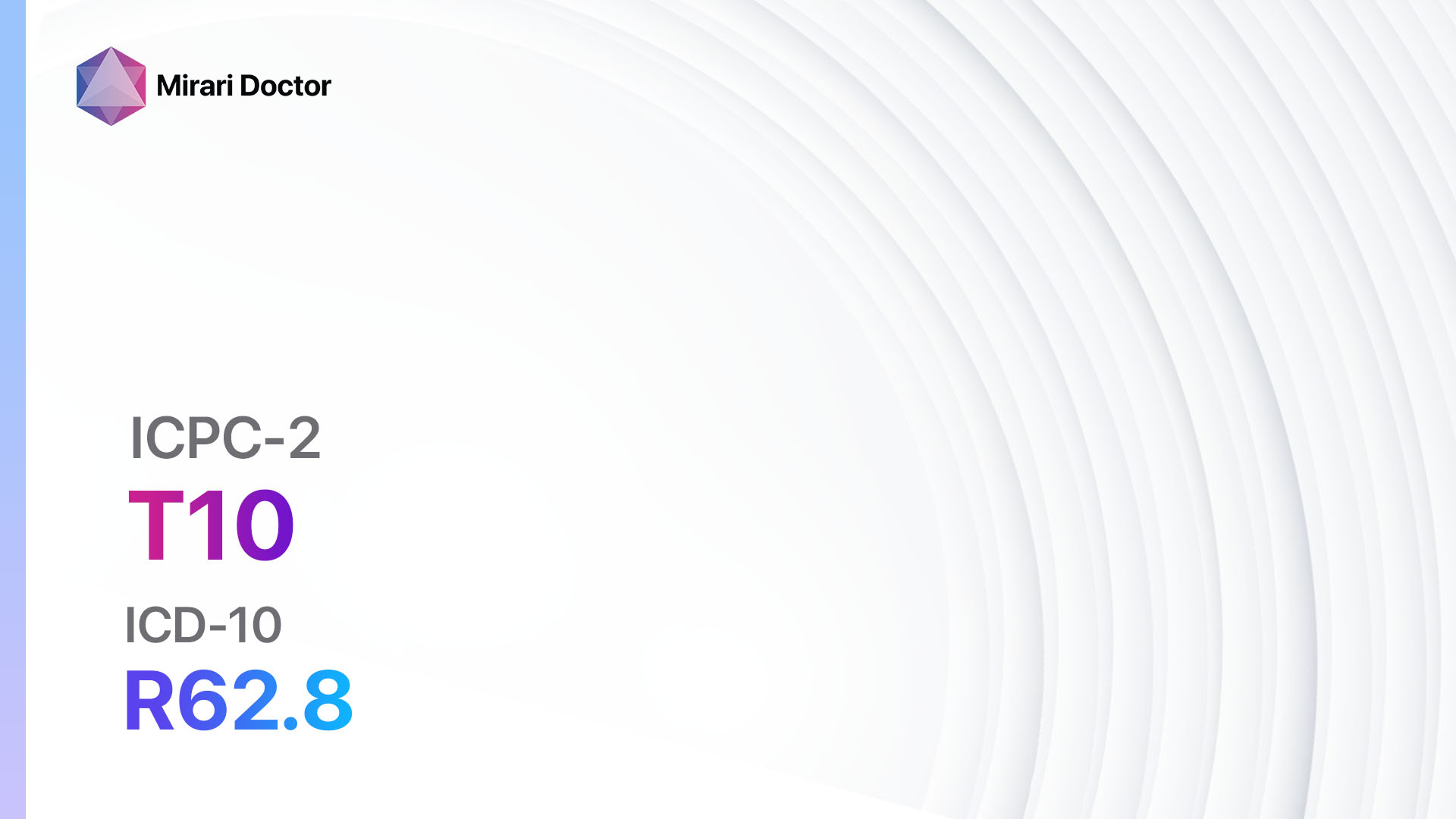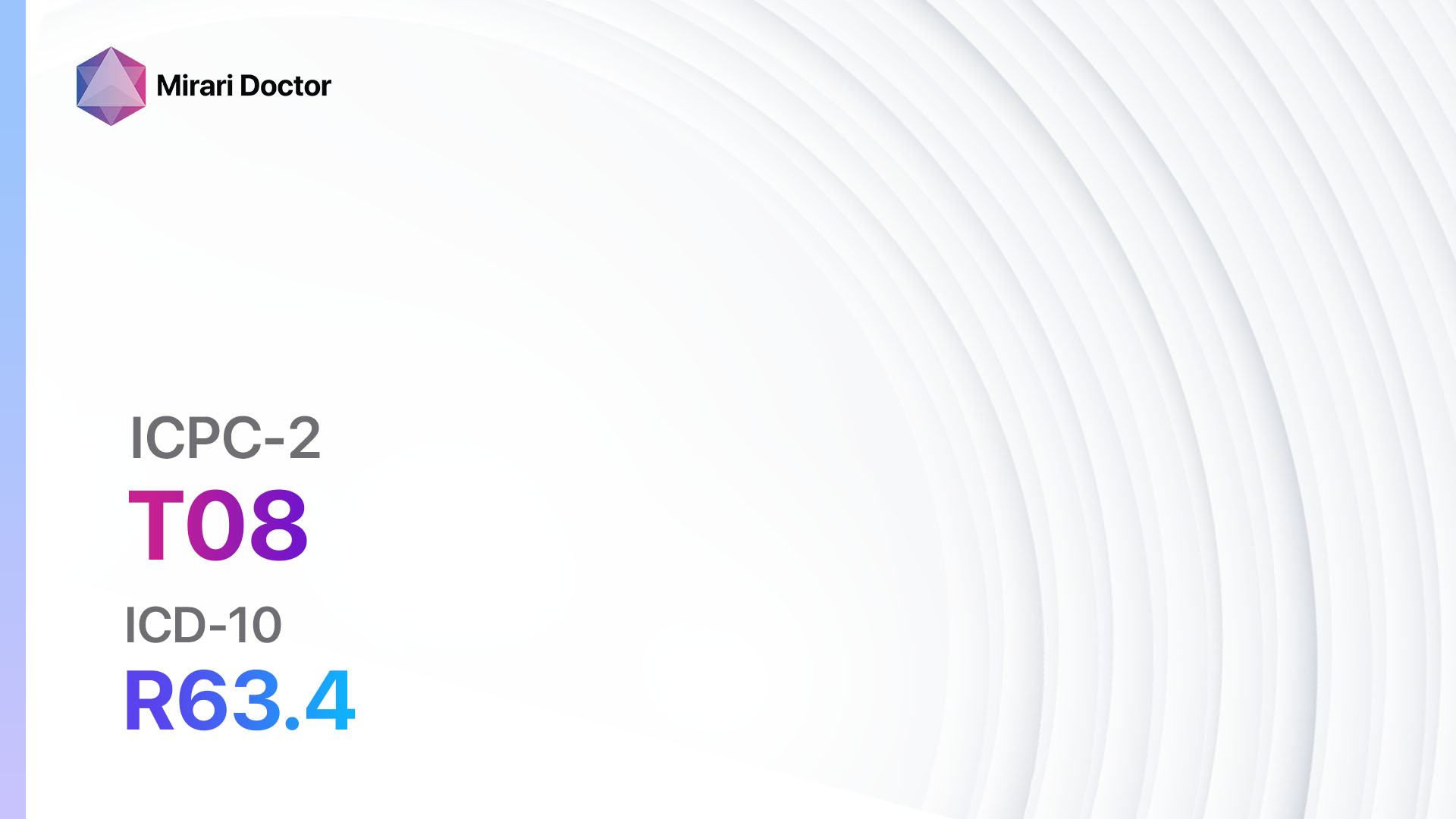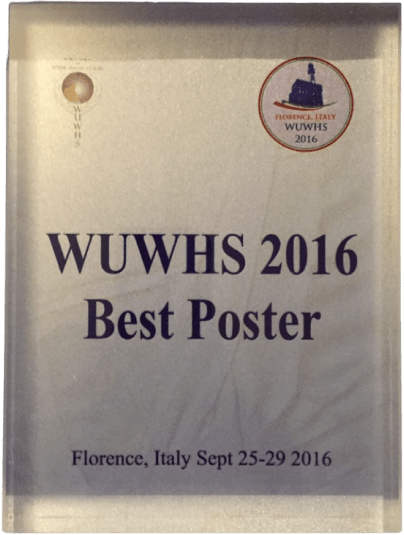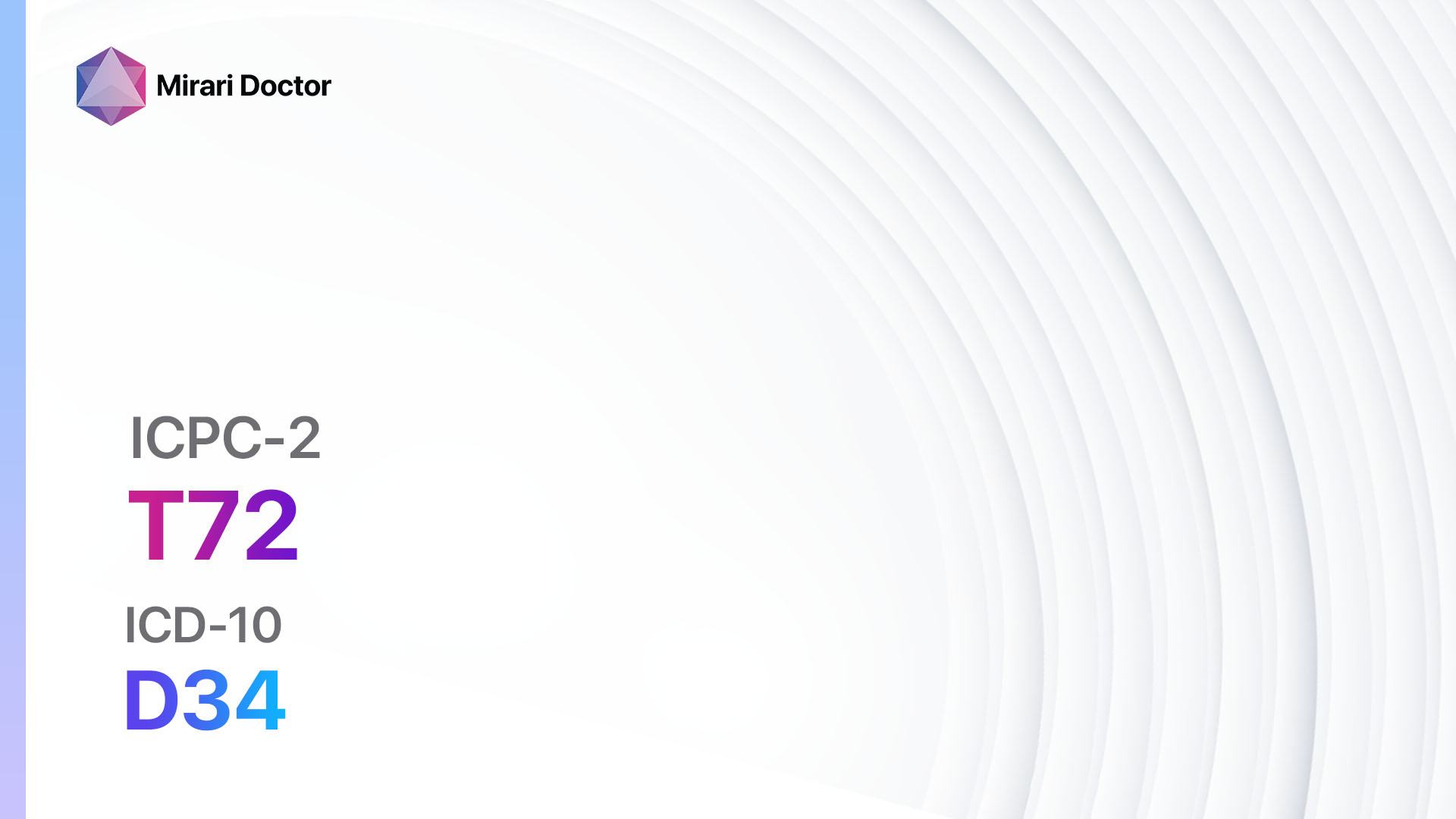
Introduction
Benign neoplasm of the thyroid refers to the presence of non-cancerous growths or tumors in the thyroid gland. While these tumors are not cancerous, they can still cause symptoms and may require treatment[1]. The aim of this guide is to provide an overview of the symptoms, causes, diagnostic steps, possible interventions, and lifestyle interventions for benign neoplasm thyroid.
Codes
Symptoms
- Enlargement of the thyroid gland (goiter)[3]
- Difficulty swallowing or breathing
- Hoarseness or voice changes
- Neck or throat pain
- Swollen lymph nodes in the neck
Causes
- Genetic factors[4]
- Exposure to radiation
- Hormonal imbalances
- Nutritional deficiencies
Diagnostic Steps
Medical History
- Gather information about the patient’s symptoms, including the duration and severity of symptoms.
- Ask about any family history of thyroid disorders or cancer.
- Inquire about any history of radiation exposure or hormonal imbalances.
- Assess the patient’s overall health and any other medical conditions they may have.
Physical Examination
- Perform a thorough examination of the neck, feeling for any lumps or enlargement of the thyroid gland[5].
- Check for any signs of compression of nearby structures, such as difficulty swallowing or breathing.
- Examine the lymph nodes in the neck for any swelling or tenderness.
Laboratory Tests
- Thyroid function tests: Measure the levels of thyroid hormones (T3, T4) and thyroid-stimulating hormone (TSH) to assess thyroid function[6].
- Thyroid antibody tests: Check for the presence of antibodies that may indicate an autoimmune cause of the benign neoplasm.
- Fine-needle aspiration biopsy: A small sample of cells is taken from the thyroid gland using a thin needle and examined under a microscope to determine if the neoplasm is benign[7].
Diagnostic Imaging
- Ultrasound: Uses sound waves to create images of the thyroid gland and can help determine the size and characteristics of the neoplasm[8].
- CT scan or MRI: Provides detailed images of the thyroid gland and surrounding structures, helping to assess the extent of the neoplasm and any compression on nearby organs.
Other Tests
- Radioactive iodine scan: Involves the administration of a small amount of radioactive iodine, which is taken up by the thyroid gland. This scan can help determine the activity and function of the neoplasm.
- Genetic testing: In some cases, genetic testing may be recommended to identify any specific genetic mutations associated with the neoplasm[9].
Follow-up and Patient Education
- Schedule regular follow-up appointments to monitor the size and progression of the neoplasm.
- Educate the patient about the signs and symptoms of thyroid cancer and the importance of seeking medical attention if they experience any concerning symptoms[10].
- Provide information about lifestyle interventions and possible interventions to manage the neoplasm.
Possible Interventions
Traditional Interventions
Medications:
Top 5 drugs for benign neoplasm thyroid:
- Levothyroxine:
- Cost: $10-$30/month.
- Contraindications: Hypersensitivity to levothyroxine, untreated adrenal insufficiency.
- Side effects: Increased appetite, weight loss, insomnia.
- Severe side effects: Chest pain, rapid or irregular heartbeat.
- Drug interactions: Antacids, calcium supplements, iron supplements.
- Warning: Regular monitoring of thyroid function is required.
- Methimazole:
- Cost: $10-$30/month.
- Contraindications: Hypersensitivity to methimazole, breastfeeding.
- Side effects: Nausea, vomiting, rash.
- Severe side effects: Severe allergic reactions, liver problems.
- Drug interactions: Warfarin, theophylline.
- Warning: Regular monitoring of thyroid function and liver function is required.
- Propranolol:
- Cost: $10-$30/month.
- Contraindications: Asthma, heart block, bradycardia.
- Side effects: Fatigue, dizziness, low blood pressure.
- Severe side effects: Worsening of heart failure, bronchospasm.
- Drug interactions: Calcium channel blockers, insulin.
- Warning: Should not be abruptly stopped.
- Radioactive iodine therapy:
- Cost: $1,000-$2,000.
- Contraindications: Pregnancy, breastfeeding.
- Side effects: Nausea, dry mouth, temporary neck pain.
- Severe side effects: Radiation sickness, damage to salivary glands.
- Drug interactions: Antithyroid medications.
- Warning: Requires isolation and precautions to prevent radiation exposure to others.
- Surgery (thyroidectomy):
- Cost: $10,000-$20,000.
- Contraindications: Severe heart or lung disease, pregnancy.
- Side effects: Pain, swelling, temporary hoarseness.
- Severe side effects: Bleeding, infection, damage to vocal cords.
- Drug interactions: None.
- Warning: Requires general anesthesia and a hospital stay.
Alternative Drugs:
- Liothyronine: An alternative thyroid hormone replacement medication.
- Propylthiouracil: An alternative antithyroid medication.
- Beta blockers: Used to manage symptoms such as rapid heartbeat and tremors.
- Cytomel: A synthetic form of T3 hormone used in combination with other thyroid medications.
- Sorafenib: A targeted therapy medication used for advanced thyroid cancer.
Surgical Procedures:
- Thyroidectomy: Surgical removal of the thyroid gland. Cost: $10,000-$20,000.
- Radiofrequency ablation: Uses heat generated by radiofrequency waves to destroy the neoplasm. Cost: $5,000-$10,000.
Alternative Interventions
- Acupuncture: May help reduce symptoms such as pain and improve overall well-being. Cost: $60-$120 per session.
- Herbal supplements: Some herbs, such as ashwagandha and bugleweed, may have potential benefits for thyroid health. Cost: Varies depending on the specific supplement.
- Mind-body techniques: Practices such as yoga and meditation can help reduce stress and improve overall health. Cost: Varies depending on the specific practice.
- Dietary modifications: A diet rich in iodine, selenium, and antioxidants may support thyroid health. Cost: Varies depending on food choices and supplements.
- Homeopathy: Some homeopathic remedies may be used to support thyroid function. Cost: Varies depending on the specific remedy.
Lifestyle Interventions
- Stress management: Engaging in stress-reducing activities such as exercise, meditation, and relaxation techniques can help support thyroid health. Cost: Varies depending on the specific activity.
- Regular exercise: Physical activity can help improve overall health and support thyroid function. Cost: Varies depending on the specific activity.
- Healthy diet: Consuming a balanced diet rich in fruits, vegetables, whole grains, and lean proteins can support thyroid health. Cost: Varies depending on food choices.
- Adequate sleep: Getting enough sleep is important for overall health and can support thyroid function. Cost: None.
- Avoidance of environmental toxins: Minimizing exposure to toxins such as cigarette smoke and certain chemicals can support thyroid health. Cost: None.
It is important to note that the cost ranges provided are approximate and may vary depending on the location and availability of the interventions.
Mirari Cold Plasma Alternative Intervention
Understanding Mirari Cold Plasma
- Safe and Non-Invasive Treatment: Mirari Cold Plasma is a safe and non-invasive treatment option for various skin conditions. It does not require incisions, minimizing the risk of scarring, bleeding, or tissue damage.
- Efficient Extraction of Foreign Bodies: Mirari Cold Plasma facilitates the removal of foreign bodies from the skin by degrading and dissociating organic matter, allowing easier access and extraction.
- Pain Reduction and Comfort: Mirari Cold Plasma has a local analgesic effect, providing pain relief during the treatment, making it more comfortable for the patient.
- Reduced Risk of Infection: Mirari Cold Plasma has antimicrobial properties, effectively killing bacteria and reducing the risk of infection.
- Accelerated Healing and Minimal Scarring: Mirari Cold Plasma stimulates wound healing and tissue regeneration, reducing healing time and minimizing the formation of scars.
Mirari Cold Plasma Prescription
Video instructions for using Mirari Cold Plasma Device – T72 Benign neoplasm thyroid (ICD-10:D34)
| Mild | Moderate | Severe |
| Mode setting: 1 (Infection) Location: 6 (Throat, Lymphatic & Thyroid) Morning: 15 minutes, Evening: 15 minutes |
Mode setting: 1 (Infection) Location: 6 (Throat, Lymphatic & Thyroid) Morning: 30 minutes, Lunch: 30 minutes, Evening: 30 minutes |
Mode setting: 1 (Infection) Location: 6 (Throat, Lymphatic & Thyroid) Morning: 30 minutes, Lunch: 30 minutes, Evening: 30 minutes |
| Mode setting: 2 (Wound Healing) Location: 6 (Throat, Lymphatic & Thyroid) Morning: 15 minutes, Evening: 15 minutes |
Mode setting: 2 (Wound Healing) Location: 6 (Throat, Lymphatic & Thyroid) Morning: 30 minutes, Lunch: 30 minutes, Evening: 30 minutes |
Mode setting: 2 (Wound Healing) Location: 6 (Throat, Lymphatic & Thyroid) Morning: 30 minutes, Lunch: 30 minutes, Evening: 30 minutes |
| Mode setting: 7 (Immunotherapy) Location: 6 (Throat, Lymphatic & Thyroid) Morning: 15 minutes, Evening: 15 minutes |
Mode setting: 7 (Immunotherapy) Location: 6 (Throat, Lymphatic & Thyroid) Morning: 30 minutes, Lunch: 30 minutes, Evening: 30 minutes |
Mode setting: 7 (Immunotherapy) Location: 6 (Throat, Lymphatic & Thyroid) Morning: 30 minutes, Lunch: 30 minutes, Evening: 30 minutes |
| Mode setting: 7 (Immunotherapy) Location: 1 (Sacrum) Morning: 15 minutes, Evening: 15 minutes |
Mode setting: 7 (Immunotherapy) Location: 1 (Sacrum) Morning: 30 minutes, Lunch: 30 minutes, Evening: 30 minutes |
Mode setting: 7 (Immunotherapy) Location: 1 (Sacrum) Morning: 30 minutes, Lunch: 30 minutes, Evening: 30 minutes |
| Total Morning: 60 minutes approx. $10 USD, Evening: 60 minutes approx. $10 USD |
Total Morning: 120 minutes approx. $20 USD, Lunch: 120 minutes approx. $20 USD, Evening: 120 minutes approx. $20 USD, |
Total Morning: 120 minutes approx. $20 USD, Lunch: 120 minutes approx. $20 USD, Evening: 120 minutes approx. $20 USD, |
| Usual treatment for 7-60 days approx. $140 USD – $1200 USD | Usual treatment for 6-8 weeks approx. $2,520 USD – $3,360 USD |
Usual treatment for 3-6 months approx. $5,400 USD – $10,800 USD
|
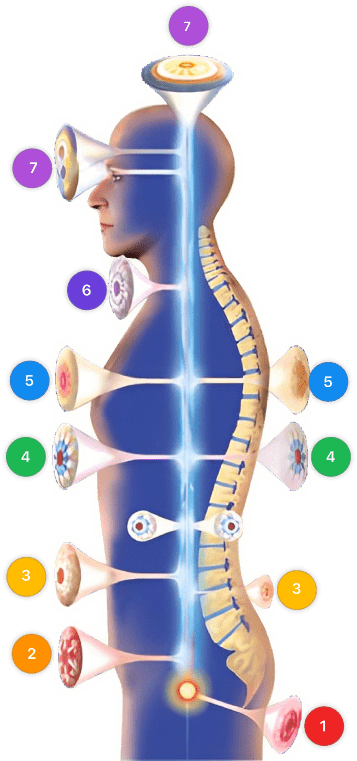 |
|
Use the Mirari Cold Plasma device to treat Benign neoplasm thyroid effectively.
WARNING: MIRARI COLD PLASMA IS DESIGNED FOR THE HUMAN BODY WITHOUT ANY ARTIFICIAL OR THIRD PARTY PRODUCTS. USE OF OTHER PRODUCTS IN COMBINATION WITH MIRARI COLD PLASMA MAY CAUSE UNPREDICTABLE EFFECTS, HARM OR INJURY. PLEASE CONSULT A MEDICAL PROFESSIONAL BEFORE COMBINING ANY OTHER PRODUCTS WITH USE OF MIRARI.
Step 1: Cleanse the Skin
- Start by cleaning the affected area of the skin with a gentle cleanser or mild soap and water. Gently pat the area dry with a clean towel.
Step 2: Prepare the Mirari Cold Plasma device
- Ensure that the Mirari Cold Plasma device is fully charged or has fresh batteries as per the manufacturer’s instructions. Make sure the device is clean and in good working condition.
- Switch on the Mirari device using the power button or by following the specific instructions provided with the device.
- Some Mirari devices may have adjustable settings for intensity or treatment duration. Follow the manufacturer’s instructions to select the appropriate settings based on your needs and the recommended guidelines.
Step 3: Apply the Device
- Place the Mirari device in direct contact with the affected area of the skin. Gently glide or hold the device over the skin surface, ensuring even coverage of the area experiencing.
- Slowly move the Mirari device in a circular motion or follow a specific pattern as indicated in the user manual. This helps ensure thorough treatment coverage.
Step 4: Monitor and Assess:
- Keep track of your progress and evaluate the effectiveness of the Mirari device in managing your Benign neoplasm thyroid. If you have any concerns or notice any adverse reactions, consult with your health care professional.
Note
This guide is for informational purposes only and should not replace the advice of a medical professional. Always consult with your healthcare provider or a qualified medical professional for personal advice, diagnosis, or treatment. Do not solely rely on the information presented here for decisions about your health. Use of this information is at your own risk. The authors of this guide, nor any associated entities or platforms, are not responsible for any potential adverse effects or outcomes based on the content.
Mirari Cold Plasma System Disclaimer
- Purpose: The Mirari Cold Plasma System is a Class 2 medical device designed for use by trained healthcare professionals. It is registered for use in Thailand and Vietnam. It is not intended for use outside of these locations.
- Informational Use: The content and information provided with the device are for educational and informational purposes only. They are not a substitute for professional medical advice or care.
- Variable Outcomes: While the device is approved for specific uses, individual outcomes can differ. We do not assert or guarantee specific medical outcomes.
- Consultation: Prior to utilizing the device or making decisions based on its content, it is essential to consult with a Certified Mirari Tele-Therapist and your medical healthcare provider regarding specific protocols.
- Liability: By using this device, users are acknowledging and accepting all potential risks. Neither the manufacturer nor the distributor will be held accountable for any adverse reactions, injuries, or damages stemming from its use.
- Geographical Availability: This device has received approval for designated purposes by the Thai and Vietnam FDA. As of now, outside of Thailand and Vietnam, the Mirari Cold Plasma System is not available for purchase or use.
References
- Haugen BR, et al. 2015 American Thyroid Association Management Guidelines for Adult Patients with Thyroid Nodules and Differentiated Thyroid Cancer. Thyroid. 2016;26(1):1-133.
- World Health Organization. International Statistical Classification of Diseases and Related Health Problems 10th Revision (ICD-10)-WHO Version for 2016.
- Hegedüs L. Clinical practice. The thyroid nodule. N Engl J Med. 2004;351(17):1764-1771.
- Nikiforov YE, Nikiforova MN. Molecular genetics and diagnosis of thyroid cancer. Nat Rev Endocrinol. 2011;7(10):569-580.
- Gharib H, Papini E. Thyroid nodules: clinical importance, assessment, and treatment. Endocrinol Metab Clin North Am. 2007;36(3):707-735.
- Biondi B, Cooper DS. The clinical significance of subclinical thyroid dysfunction. Endocr Rev. 2008;29(1):76-131.
- Cibas ES, Ali SZ. The Bethesda System for Reporting Thyroid Cytopathology. Thyroid. 2009;19(11):1159-1165.
- Frates MC, et al. Management of thyroid nodules detected at US: Society of Radiologists in Ultrasound consensus conference statement. Radiology. 2005;237(3):794-800.
- Luster M, et al. Guidelines for radioiodine therapy of differentiated thyroid cancer. Eur J Nucl Med Mol Imaging. 2008;35(10):1941-1959.
- Davies L, Welch HG. Current thyroid cancer trends in the United States. JAMA Otolaryngol Head Neck Surg. 2014;140(4):317-322.
Related articles
Made in USA
